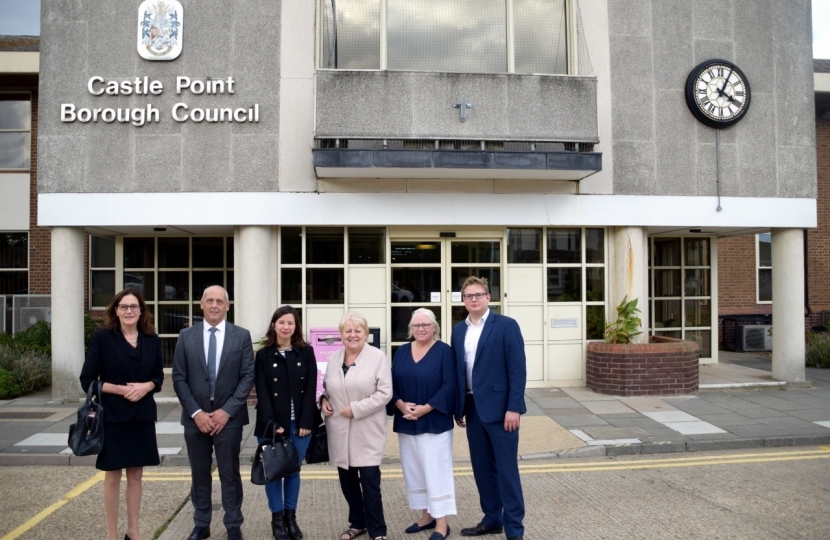
Castle Point Council’s share of a £416 million fund from the Government has been used to abolish the waiting list for home adaptions for disabled residents.
This year £679,055 of funding from the ‘Better Care Fund’ has meant that everybody who successfully applied for a ‘Disabled Facilities Grant’ to adapt their home up until April has been allocated a grant for it. This is the first time that there has been no waiting list for the grants since 1997.
In the last three years Castle Point has received an extra £1,908,000 of funding from the Better Care Fund. Disabled Facilities Grants are available for elderly or disabled residents to enable them to live independently or be cared for in their homes. They are used to help resident gain access to rooms, to use bathroom and kitchen appliances, and where necessary improve heating or lighting. To qualify for the grant applicants must first be referred after an assessment by Essex County Council.
The abolition of the waiting list was highlighted at a council cabinet meeting last week. Speaking on the news, Cabinet member for Health and Wellbeing, Councillor Colin Maclean, said:
“The Disability Facilities Grant facility is a vital service for those residents within our community who wish to remain within their own homes but require some assistance to make their properties suitable to accommodate their disability. We are fortunate within Castle Point to have Council Officers who make the application process as simple and effective as possible.”
Council Leader Norman Smith added:
“We are an aging borough and for many years the number of applications for the grant has outstripped the funding we had for it. I am very pleased the Government has stepped up and provided us with extra funding through the Better Care Fund. Hundreds of our residents will have the adaptions that allow them to stay in their own home quicker.”
Castle Point MP Rebecca Harris, who supported the introduction of the Better Care Fund back in 2014, said:
“The Better Care Fund is designed to improve the quality of life of those who need assistance. People living with disabilities can face many challenges every day, but getting around their own home shouldn’t be one of them. These adaptations are necessary for people to stay in their own homes longer. I am very pleased that this extra money has meant that none of my residents who require their home to be adapted aren’t having to wait.”